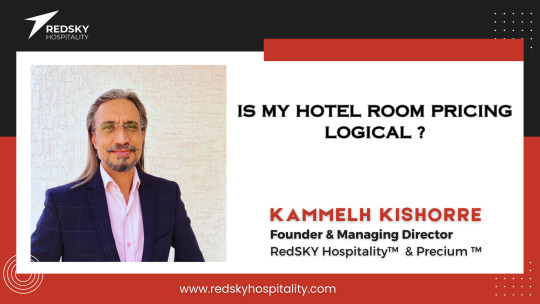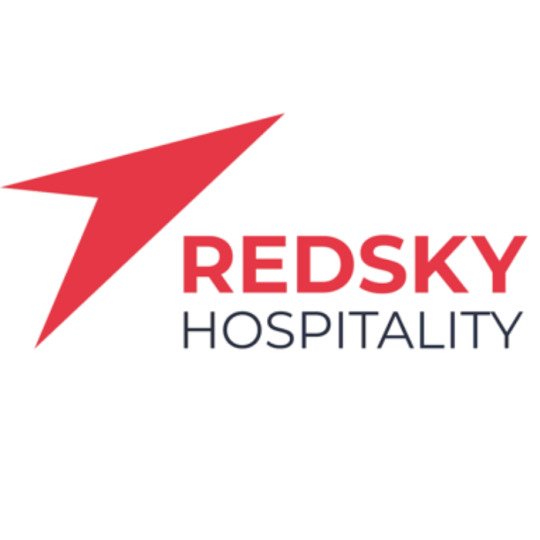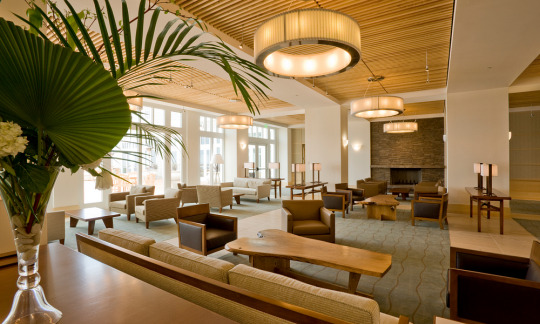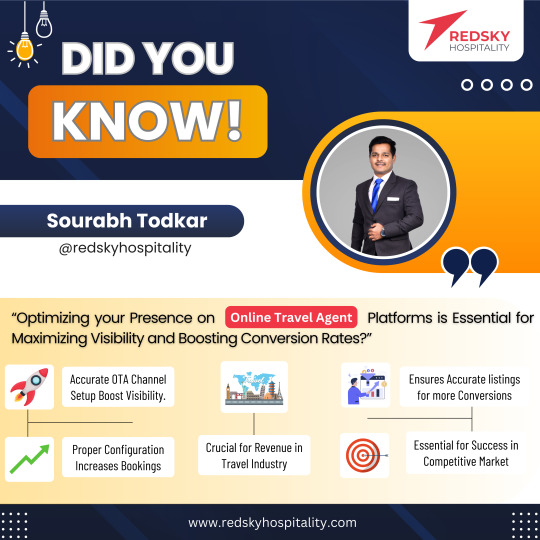#OTA channel manager
Explore tagged Tumblr posts
Text

Our efficient & best OTA Channel Manager for hotels simplifies operations by automating channel distribution and inventory updates. Enhance your efficiency today!
Find out more about us on - https://bookingjini.com/channel-manager/
#ota channel manager#hotel channel manager software#ota management software#best channel manager software#hotel channel manager#software channel manager#channel manager hotel#channel manager software#ota hotel management software#hotel software channel manager
0 notes
Text
How Does OTA Channel Manager Help Manage Multiple Booking Channels?
OTA Channel Manager simplifies the management of multiple booking channels by centralizing inventory and rate updates across various online travel agencies. The channel manager updates availability and pricing in real-time, reducing the risk of overbooking. It simplifies the management process, saves time, and increases efficiency. By automating updates and syncing data, OTA Channel Manager helps hotels grow their online presence.
0 notes
Text
#Channel Manager#Hotel Channel Manager#hotel channel manager software#OTA channel manager#best channel manager for small b&b#online channel manager
0 notes
Text
The Best Hotel Marketing Agency for Maximizing Your Hotel's Success
Introduction: In today’s competitive hospitality industry, effective marketing is essential for any hotel aiming to maximize occupancy and revenue. With the myriad of challenges that hotels face, from maintaining a strong online presence to managing bookings across multiple platforms, the need for a specialized hotel marketing agency has never been greater. Choosing the right partner can make a significant difference in achieving your hotel's goals, and this is where Grow Vista Hospitality stands out.
Why Your Hotel Needs a Marketing Agency: Marketing a hotel is a complex task that involves more than just advertising rooms. Hotels need to manage their online presence, engage with potential guests on social media, optimize their listings on various OTAs, and ensure they are visible in search engine results. A professional hotel marketing agency can handle these tasks efficiently, allowing hotel owners to focus on delivering exceptional guest experiences.
Services Offered by Top Hotel Marketing Agencies:
Search Engine Optimization (SEO): Ensures your hotel website ranks higher in search engine results, driving organic traffic and bookings.
Social Media Management: Enhances your brand’s narrative on platforms like Instagram and Facebook, engaging potential guests with compelling content.
OTA Management: Manages your listings on OTAs, optimizing pricing and content to increase visibility and bookings.
Online Reputation Management: Monitors and responds to reviews across major platforms, enhancing your hotel’s online reputation.
Graphic and Video Content: Creates engaging visuals and videos that showcase your hotel’s unique features.
What Makes Grow Vista Hospitality the Best Hotel Marketing Agency: Grow Vista Hospitality goes beyond the standard offerings of most hotel marketing agencies. Here’s what sets them apart:
Comprehensive Service Portfolio: Grow Vista provides a 360-degree marketing and business development package that includes:
Search Engine Optimization (SEO): Achieve higher rankings in search engine results to drive organic traffic and bookings.
Social Media Management: Enhance your social media presence with strategic content and consistent engagement.
OTA Management: Unlock the potential of 15+ OTAs and 200+ affiliate partners with seamless listing and dynamic pricing strategies.
Online Reputation Management: Monitor and respond to reviews to maintain a positive online reputation.
Graphic and Video Content: Create captivating visual content to showcase your hotel's unique features.
Google My Business Management: Optimize your Google My Business listing for better visibility and engagement.
Front Desk Nurturing: Train and motivate your staff to deliver exceptional guest experiences.
Paid Advertising Campaigns: Execute targeted Google Ads and other paid campaigns to drive immediate results.
Channel Manager: Seamlessly manage inventory and rates across multiple OTAs.
Virtual Front Desk: Manage bookings and guest interactions efficiently with Grow Vista’s virtual front desk services.
Unique Offline Sales Support: Grow Vista is the only company offering dedicated offline sales support. This includes:
PAN-India Presence: A personalized sales team that reaches every corner of the country.
Tying Up Opportunities: Connecting with companies for corporate group trips and collaborating with event planners.
Centralized Excellence: A sales team headquartered in Delhi NCR, specializing in bulk bookings.
Proactive Outreach: Making over 200 personalized calls every day to explore opportunities.
Future Bookings: Proposals for future bookings to help hotels anticipate and plan for success.
Proven Success Stories: Grow Vista’s clients have experienced significant growth in bookings and revenue, thanks to their strategic marketing approach and commitment to excellence.
Client-Centric Approach: With a focus on building lasting relationships, Grow Vista ensures personalized attention and tailored solutions for each hotel they work with.
How to Choose the Right Hotel Marketing Agency: When selecting a hotel marketing agency, consider the following factors:
Experience and Expertise: Look for agencies with a proven track record in the hospitality industry.
Range of Services: Ensure the agency offers a comprehensive range of services that meet your hotel's needs.
Client Testimonials: Check reviews and testimonials from other hotel owners to gauge the agency’s effectiveness.
Customization: The agency should provide tailored solutions rather than a one-size-fits-all approach.
Performance Metrics: Ask about how the agency measures success and their reporting processes.
Conclusion: Partnering with the right hotel marketing agency can significantly impact your hotel's success. Grow Vista Hospitality, with its unique offerings and client-centric approach, stands out as the best choice for hotels looking to maximize their marketing efforts and achieve sustained growth. Visit Grow Vista Hospitality's website to learn more and start your journey towards success.
2 notes
·
View notes
Text

Is My Hotel Room Pricing Logical ?
For Some People, Setting Prices is Straightforward, While for others, It's More Challenging. But let's Put Aside Whether it's Easy or Complicated and Focus on the Core Question: Is the Price I'm Setting for my Hotel Rooms Logical?
Consider These Scenarios to Explore This Question:
You have a 50-room hotel with one room type. A group books 25 rooms, bringing your occupancy to 50%. Should you increase or hold retail pricing on OTAs and your brand's website? What factors influence this decision?
If your Corporate Individual – Negotiated Segment bookings are strong, should you increase or hold retail pricing? Why?
If you have only 5 rooms left to sell for today, should you raise prices or keep them steady?There may be many situations, where you might be inclined towards increasing the price points, when your property occupancy increases or Vice versa.
While it might seem intuitive to raise prices as occupancy increases, is occupancy the only factor to consider when setting prices?
Ultimately, the customer decides whether to book your room at the given price. You can set whatever price you like, but it's the buyer's decision to accept or reject it. To ensure you're competitive and growing revenue and profitability, you need to find the right price point.
How Do You Determine The Right Price?
The answer lies in understanding the Behaviour of your property. Just as people can be polite or rude, hardworking or lazy, hotels have characteristics that inform pricing decisions. To understand your hotel's Behaviour, consider these key aspects:
🟢Lead Times: Do bookings happen well in advance or closer to the arrival date? For example, weddings are typically booked well ahead of time, while business Travellers might book closer to their stay.
🟢Day of the Week Patterns: Leisure Travellers might prefer weekends, while corporate clients usually book weekdays.
🟢Length of Stay (LOS): What's the typical length of stay for different market segments?
🟢Price Elasticity: How does demand change with price fluctuations on different days of the week and during different seasons?
🟢Demand and Supply Balance: How does seasonality affect demand and supply across different market segments?
🟢Past and Current Trends: Are there noticeable changes in booking patterns?
🟢Socio-Economic Factors: What broader factors could impact customer Behaviour?
These insights help you forecast more accurately and make better pricing decisions.
It's important to remember that simply raising prices doesn't guarantee increased revenue. You need to consider the market segment mix, channel mix, and strategies to extend length of stay to grow occupancy during quieter times. Accurate forecasting enables you to make well-informed decisions about pricing, yield management, and channel management.
Expanding your distribution through a channel manager with a wide reach can also help increase demand, boosting your property's revenue.

RedSKY Hospitality provides services and expertise to help revenue managers optimize market segments and channel mix to maximize revenue and profitability. Using advanced technology, they can forecast and make informed pricing decisions.

Precium Technologies offers tools to aid accurate forecasting and competitor rate shopping to keep you up-to-date with market trends. Their AI-based pricing recommendation tool helps suggest the optimal price to maximize RevPAR and profitability.
By understanding your property's Behaviour and using advanced tools, you can set prices that attract customers while maximizing revenue and profitability.
#hospitality#redskyhospitality#hospitalityindustry#hotelrevenue#hotelrevenuemanagement#indianhotel#hotelowners#businessintelligence#directbooking#precium#preciumtechnologies
3 notes
·
View notes
Text
Comparative Analysis: B2B Hotel Portal vs. OTA Platforms - Which Model Strengthens Your B2B Travel Relationships?

In the competitive world of b2b travel, companies often face a critical decision: invest in a dedicated B2B hotel portal or leverage an Online Travel Agency (OTA) platform.
Both options offer distinct advantages for b2b travel booking, yet they also come with unique challenges that can significantly affect long-term business relationships.
From direct partnerships to revenue optimization, this comparative analysis explores which model is best suited for strengthening ties in the b2b travel space.
Understanding the B2B Hotel Portal
A B2B hotel portal is a centralized platform designed for corporate clients, travel agents, or other b2b travel companies seeking a specialized, private environment. This setup often integrates b2b travel software to handle negotiations, rate management, and streamlined booking processes.
Advantages
Focused Relationship Building By directly interfacing with corporate partners and travel agents, hotels and b2b travel services providers can foster stronger, more personalized relationships. Custom incentives, co-branded experiences, and negotiated rates often enhance long-term loyalty.
Flexible Pricing and Rate Parity A proprietary portal allows for tailored pricing, including volume discounts and special corporate deals. This customization is particularly beneficial for a business travel solution where client needs vary widely.
Private-Label & Co-Branding Potential Many B2B platforms can be private-labeled or co-branded to reinforce brand identity. This creates a sense of exclusivity that might be lost on public OTA sites.
Data Control & Ownership Owning the platform means direct access to user data like booking patterns and peak travel times. These insights can be crucial for refining offers and improving the overall b2b travel booking experience.
Drawbacks
Higher Setup & Maintenance Costs: Building or licensing a B2B portal requires ongoing investment in b2b travel software, security, and user support.
Marketing Efforts: Unlike OTAs with massive user bases, a proprietary portal demands extra marketing to attract potential partners.
Limited Consumer Exposure: Because it’s aimed at b2b travel companies or corporate clients, a B2B portal lacks the immediate mass reach that OTAs can provide.

The OTA Model in B2B Travel
Online Travel Agencies are popular for their wide market presence, catering to both leisure and business travel solution needs. Partnering with an OTA often provides instant visibility to a vast audience, though it can dilute direct brand engagement.
Advantages
Large-Scale Market Access OTAs handle extensive marketing and customer acquisition, granting hotels and other b2b travel providers immediate exposure.
Operational Convenience Many OTAs manage payment processing, reservation tracking, and partial customer support. This can free up internal resources for b2b travel companies to focus on other strategic initiatives.
Optimized User Experience OTA platforms typically excel at user interface design, driving conversions through effortless navigation and booking funnels, beneficial for both casual travelers and corporate clients seeking a quick business travel solution.
Brand Recognition & Trust Established OTAs often enjoy global credibility, reassuring customers who might be wary of booking through lesser-known channels.
Drawbacks
Commission-Based Model: OTA fees can significantly erode profit margins, especially for smaller b2b travel services.
Limited Control Over Branding: Listings must follow the OTA’s layout and policies, reducing the opportunity for hotels to build direct relationships with clients.
Intense Competition: In an OTA marketplace, a hotel’s offering competes directly with a multitude of similar listings, often requiring additional spend to secure top placement.
Deciding Which Model Fits Your B2B Travel Strategy
Target Market
Corporate & Travel Agent-Focused: A B2B portal with customized rates and deeper relationship-building might be best.
Broad Audience Coverage: OTAs offer wide reach, perfect for companies lacking a robust marketing engine.
Revenue Priorities
Margin Preservation: Reduced commission fees in a B2B portal can yield higher profit margins.
High Booking Volumes: OTAs can generate significant volumes quickly, though often at the cost of steeper commissions.
Brand Identity & Control
Exclusive Branding: B2B portals empower b2b travel companies to maintain consistent messaging and offers.
Immediate Exposure: OTAs deliver brand visibility on a global scale, albeit with uniform listings.
Technical Capabilities
Custom Integrations: Building a portal requires comprehensive b2b travel software solutions, CRM integration, and possibly white-label features.
Ready-Made Solutions: OTAs handle payment systems, user interfaces, and in some cases, partial marketing.
Relationship Goals
Long-Term Partnerships: Deeper communication and specialized deals flourish in a B2B portal environment.
Consumer-Focused Bookings: OTAs excel at attracting diverse travelers, which can boost brand awareness but limit direct loyalty-building.
Blending Both Approaches
In many cases, b2b travel services adopt a dual-channel strategy — combining an OTA presence with a dedicated B2B portal:
OTAs for Visibility: Leverage the OTA’s massive reach for demand during off-peak seasons or to introduce your product to new markets.
B2B Portal for Depth: Strengthen ties with corporate accounts and travel agents through specialized offers, loyalty programs, and rate negotiations.
This hybrid method maximizes reach while preserving premium relationships, directly impacting your bottom line.
Conclusion
When choosing between a B2B hotel portal and an OTA approach, consider the relationships your business aims to cultivate in the b2b travel sector.
A specialized portal fosters exclusivity, control, and stronger partnerships, potentially yielding higher margins. Conversely, an OTA channel delivers immediate global exposure and optimized booking experiences, though often at a higher cost and with limited branding opportunities.
Ultimately, the most effective path may integrate both solutions, using OTAs to capture wide market share and a B2B portal to nurture more profound, more profitable partnerships. By aligning these strategies with core objectives, be it margin protection, brand visibility, or business travel solution optimization; companies can fortify their position in the bustling world of b2b travel while forging meaningful, enduring business relationships.
Looking to build a private-labeled hotel portal? Book a demo.
#custom travel solutions#private label#white label#travel club#travel#travel loyalty program#hotel#travelers
0 notes
Text
Understanding the Difference Between Revenue Management System and Revenue Management Software

In the hospitality industry, optimizing revenue and ensuring guest satisfaction are key priorities. To achieve this, hotels rely on advanced tools and strategies that streamline pricing and inventory management. At MMR Hotels, maximizing profitability and maintaining a competitive edge are made possible with revenue management software. This technology-driven solution helps automate pricing strategies, forecast demand, and simplify operations, ensuring hotels operate at peak efficiency in a highly competitive market.
What is Revenue Management Software?
Revenue management software is a powerful tool designed to analyze market trends, monitor competitor pricing, and optimize room rates in real time. It leverages data analytics, machine learning, and automation to ensure hotels offer competitive prices while maximizing their revenue potential.
The software aids in streamlining revenue management strategies, allowing hotels to adjust pricing dynamically based on demand, seasonal fluctuations, and booking trends. At MMR Hotels, implementing the right revenue management software is crucial for improving operational efficiency and maintaining long-term profitability.
Revenue Management System vs. Revenue Management Software
A Revenue Management System (RMS) refers to the overall framework hotels use to manage pricing and inventory. It includes strategies, processes, and guidelines that govern revenue optimization. Revenue management software, on the other hand, is the technological tool that automates these strategies, making the process more efficient and accurate.
While an RMS lays out the foundation, revenue management software executes pricing models, analyzes demand, and manages inventory seamlessly. The combination of both ensures hotels remain competitive and maximize revenue opportunities.
Key Metrics in Revenue Management
Understanding essential metrics helps hotels effectively manage their revenue management software and improve performance:
ADR (Average Daily Rate) – Measures the average revenue earned per occupied room.
Formula: ADR = Total Room Revenue / Rooms Sold
Revenue management software helps hotels adjust ADR dynamically to stay competitive.
RevPAR (Revenue Per Available Room) – Indicates revenue performance based on pricing and occupancy levels.
Formula: RevPAR = ADR × Occupancy Rate
Optimizing RevPAR ensures balanced pricing strategies that maximize revenue.
GOPPAR (Gross Operating Profit Per Available Room) – Focuses on profitability by factoring in operational costs.
Formula: GOPPAR = Gross Operating Profit / Total Available Rooms
Using advanced cost analysis tools, hotels can improve overall profit margins.
How Revenue Management Software Works at MMR Hotels
At MMR Hotels, revenue management software relies on smart algorithms to optimize pricing, predict booking trends, and manage inventory efficiently. It integrates several key components, including:
1. Dynamic Pricing
Prices are automatically adjusted based on demand, seasonal trends, and competitor pricing strategies, ensuring optimal revenue generation.
2. Demand Forecasting
AI-powered analytics help anticipate booking patterns, enabling hotels to prepare inventory and pricing strategies for high and low seasons.
3. Competitor Rate Monitoring
Hotels can track competitor pricing strategies, allowing them to adjust rates accordingly and maintain a competitive edge.
4. Customer Segmentation Analysis
Identifies high-value guests and tailors pricing models to attract premium bookings.
5. Multi-Channel Distribution Integration
Seamlessly connects booking platforms, optimizing room availability across OTAs, direct channels, and global distribution systems.
Advantages of Revenue Management Software for MMR Hotels
Implementing revenue management software offers multiple benefits, including:
1. Increased Revenue
Optimized pricing strategies help maximize ADR, RevPAR, and overall profitability, ensuring financial success.
2. Time Efficiency
Automation reduces manual workload, allowing hotel staff to focus on guest service and operational improvements.
3. Data-Driven Decision Making
Real-time analytics empower hoteliers to make strategic pricing decisions based on accurate insights.
4. Competitive Edge
Effective use of revenue management software helps hotels maintain competitive pricing and optimal occupancy levels.
5. Improved Guest Experience
Smart pricing ensures guests receive fair rates, enhancing satisfaction and loyalty.
Technologies and Tools Used at MMR Hotels
To ensure maximum efficiency, MMR Hotels integrates various advanced technologies within its revenue management software, such as:
Cloud-Based Solutions – Enables real-time data access and synchronization.
AI-Powered Analytics – Improves pricing accuracy with deep learning models.
Automated Demand Forecasting – Uses historical trends for improved predictions.
Cybersecurity Measures – Ensures data protection and encryption for secure operations.
Overcoming Challenges in Revenue Management Software Implementation
While implementing revenue management software can be highly beneficial, hotels may face certain challenges:
1. Resistance to Change
Some staff members may hesitate to adopt new technologies. Training programs at MMR Hotels help ease the transition and encourage adoption.
2. Initial Investment Costs
Although revenue management software requires an initial investment, long-term benefits in revenue optimization outweigh the costs.
3. Data Integration Complexity
Combining multiple data sources may be difficult, but MMR Hotels ensures seamless system integration for smooth operations.
Why Choose MMR Hotels’ Revenue Management Software?
MMR Hotels stands out as a leader in revenue optimization due to its commitment to innovation, user-friendly software design, and advanced analytical tools. By integrating AI-driven pricing, real-time analytics, and multi-channel distribution, MMR Hotels ensures maximum revenue potential for its properties.
Conclusion
Revenue management software has revolutionized the hospitality industry, allowing hotels to refine pricing strategies, forecast demand, and streamline operations effectively. MMR Hotels leads the way with its cutting-edge solutions designed to optimize revenue and enhance guest experiences. Investing in MMR Hotels’ revenue management software ensures sustained profitability and long-term success in the constantly shifting hospitality market.
Read More………
-: https://mmrhotels.hashnode.dev/effective-hotel-online-marketing-strategies-to-boost-bookings-and-revenue
0 notes
Text
Professional Travel Management Company for Seamless Corporate Travel
Discover expert travel management solutions tailored for corporate needs. Simplify business travel planning with our reliable and cost-effective services.
0 notes
Text
Factors Affecting Hotel Pricing | Sciative
Several factors influence how hotels set their room rates:
Demand and Supply: Seasonal changes, local events, and economic factors can cause fluctuations in demand. For example, a hotel in a tourist hotspot may see higher demand during peak vacation seasons.
Location: Prime locations with proximity to attractions or business districts often allow hotels to command higher rates. For instance, a downtown hotel will typically have higher rates than one located on the outskirts.
Competition: Rates set by nearby hotels can impact pricing decisions. Hotels need to stay competitive to attract guests away from rival properties.
Room Type and Features: Premium rooms with better views, larger sizes, or additional amenities often justify higher rates. For example, a suite with a jacuzzi will be priced higher than a standard room.
Booking Channels: Different platforms (hotel websites, OTAs, etc.) may have varying commissions and pricing structures, affecting how rates are set.
Seasonality: Changes in seasons can significantly impact demand. For instance, ski resorts will see higher rates during winter compared to the summer months.
Ratings and Reviews: Hotels with higher ratings and positive reviews can command higher rates due to their perceived value and quality.
Day of the Week: Room rates can vary depending on the day of the week, with weekends often commanding higher rates in leisure destinations and weekdays being pricier in business hubs.
Advance Booking: Booking in advance can influence pricing, with early reservations often benefiting from lower rates compared to last-minute bookings.
Several factors influence how hotels set their room rates:
Demand and Supply: Seasonal changes, local events, and economic factors can cause fluctuations in demand. For example, a hotel in a tourist hotspot may see higher demand during peak vacation seasons.
Location: Prime locations with proximity to attractions or business districts often allow hotels to command higher rates. For instance, a downtown hotel will typically have higher rates than one located on the outskirts.
Competition: Rates set by nearby hotels can impact pricing decisions. Hotels need to stay competitive to attract guests away from rival properties.
Room Type and Features: Premium rooms with better views, larger sizes, or additional amenities often justify higher rates. For example, a suite with a jacuzzi will be priced higher than a standard room.
Booking Channels: Different platforms (hotel websites, OTAs, etc.) may have varying commissions and pricing structures, affecting how rates are set.
Seasonality: Changes in seasons can significantly impact demand. For instance, ski resorts will see higher rates during winter compared to the summer months.
Ratings and Reviews: Hotels with higher ratings and positive reviews can command higher rates due to their perceived value and quality.
Day of the Week: Room rates can vary depending on the day of the week, with weekends often commanding higher rates in leisure destinations and weekdays being pricier in business hubs.
Advance Booking: Booking in advance can influence pricing, with early reservations often benefiting from lower rates compared to last-minute bookings.
Conclusion
Effective hotel room pricing strategies are crucial for maximizing revenue and staying competitive. By using approaches like dynamic pricing, occupancy-based pricing, and segment-based pricing, hotels can adapt to demand fluctuations, optimize rates, and enhance guest satisfaction. Embracing tools such as Revenue Management Systems (RMS) enables hotels to make data-driven decisions and maintain a competitive edge. Regularly adjusting pricing strategies ensures that hotels can meet guest expectations and achieve optimal financial performance in a dynamic market.
0 notes
Text
Mastering Hotel Revenue Management: Strategies to Maximize Profit

In the ever-evolving hospitality industry, hotel revenue management plays a pivotal role in maximizing profitability. It’s more than just setting room rates—it's about understanding market dynamics, guest behavior, seasonal trends, and tech-driven insights. When done right, revenue management can dramatically boost a hotel’s bottom line. Here's a deep dive into the strategies that actually work in 2025.
1. Dynamic Pricing Based on Demand
Successful hotels never stick to static pricing. Instead, they use dynamic pricing tools that adjust room rates in real-time based on factors like demand, booking windows, competitor pricing, and local events. This ensures you’re charging the right price at the right time to the right customer.
2. Segmentation and Targeted Offers
Not all guests are the same. Segment your market based on travel intent—corporate travelers, families, weekenders, or international tourists. Create packages, add-ons, or discounts tailored to each segment, increasing chances of conversion and upselling.
3. Use of Advanced Forecasting Tools
Revenue managers rely on historical data, booking patterns, and AI forecasting to predict demand. These insights help in smarter budgeting, staffing, and inventory allocation—reducing operational costs while maximizing revenue opportunities.
4. Channel Management Optimization
Distribute rooms across OTAs, direct websites, travel agents, and corporate bookings—but maintain rate parity and profitability. Using a channel manager ensures optimal visibility and control, helping reduce overbookings and underutilization.
5. Direct Booking Incentives
Encouraging direct bookings helps bypass OTA commissions. Offer website-exclusive perks like free breakfast, room upgrades, or early check-in to incentivize guests to book directly.
6. Upselling and Cross-Selling Techniques
Train front-desk and reservation staff to recommend higher-category rooms, spa services, or dining offers during the booking or check-in process. This not only enhances guest experience but also increases per-guest revenue.
7. Length-of-Stay Controls and Minimum Stay Policies
During high-demand periods, setting a minimum length of stay can reduce the risk of gaps between bookings and increase total revenue per available room (RevPAR). Strategic restrictions can drive longer stays and reduce turnover costs.
8. Regular Performance Review and Strategy Adjustments
Revenue management is not a set-it-and-forget-it strategy. Continuously monitor KPIs like ADR (Average Daily Rate), RevPAR, and occupancy rates to identify what’s working and where adjustments are needed.
9. Professional Training in Revenue Management
In today's data-driven era, specialized knowledge is essential. Many professionals refine their revenue management skills through a certified Hotel Management Institute in Udaipur as where they learn not only pricing strategies but also how to integrate tech and market analytics effectively into decision-making.
Conclusion
Revenue management is both an art and a science. It blends technology, market intuition, guest psychology, and solid data analytics. The most successful hotels are those that not only implement these strategies but also adapt them continuously with market trends.
0 notes
Text
Revenue Management Strategies Every Hospitality Manager Should Know

In an industry as dynamic and competitive as hospitality, success is not solely dependent on occupancy rates or service quality. Profitability and sustainability hinge on effective revenue management — a set of strategies used to sell the right product to the right customer at the right time for the right price. For hospitality managers aiming to stay ahead, mastering revenue management is essential.
Whether you're an independent hotelier or part of a larger brand, these strategies are crucial to maximizing income. Many properties today turn to the Best Hotel Management Company in India or experienced Hospitality Management Companies in India to implement advanced revenue management techniques and outperform competitors.
1. Understand the Core of Revenue Management
Revenue management in the hotel industry is about analyzing data and using that insight to predict demand, optimize pricing, and manage inventory. Its goal is to increase RevPAR (Revenue Per Available Room) and GOPPAR (Gross Operating Profit Per Available Room).
Key principles include:
Market segmentation
Demand forecasting
Dynamic pricing
Length-of-stay controls
Distribution channel management
These practices ensure that rooms are sold in a way that maximizes overall profitability — not just occupancy.
2. Market Segmentation: Know Your Guests
Before you can price strategically, you must know who your guests are. Segmenting your market allows for personalized marketing, tailored packages, and targeted promotions.
Common segments include:
Corporate travelers
Leisure tourists
Group bookings (weddings, conferences)
Long-stay guests
High-value VIPs
The best hotel management company in India typically builds guest personas and segment profiles using booking trends and guest data analytics, helping hoteliers design smarter rate plans and experiences.
3. Dynamic Pricing: Adjust Rates in Real Time
Gone are the days of static seasonal pricing. Today’s competitive hotels use dynamic pricing models to change room rates in real-time based on:
Competitor pricing
Demand forecasts
Local events and holidays
Online search trends
Time to check-in date (lead time)
Using a pricing engine or RMS (Revenue Management System), hotels can automate rate changes to capture maximum revenue. Leading hospitality management companies in India integrate these systems with PMS (Property Management Software) to ensure real-time synchronization.
4. Demand Forecasting: Plan Ahead with Data
Forecasting demand is the foundation of any revenue strategy. Hospitality managers use historical data, current market trends, and event calendars to anticipate:
Occupancy levels
Booking windows
Cancellation rates
Average length of stay
Accurate forecasts allow for proactive decisions on staffing, promotions, and inventory allocation. The best hotel management company in India usually has access to proprietary data tools or expert analysts to create reliable demand models.
5. Distribution Channel Optimization
Every hotel sells through multiple distribution channels: OTAs (Online Travel Agencies), direct bookings, travel agents, corporate contracts, and metasearch engines. Managing these efficiently is critical.
Tips include:
Prioritizing direct bookings through better website UX and exclusive offers
Monitoring OTA commissions and costs
Using channel managers for seamless inventory control
Keeping parity in pricing and content across all platforms
Top hospitality management companies in India help hotels improve profitability by shifting reliance from third-party bookings to direct channels.
6. Strategic Use of Promotions and Packages
Targeted promotions can fill need periods and boost off-season occupancy. Popular strategies include:
Flash sales or early bird discounts
Last-minute deals
Value-added packages (e.g., spa, dinner, sightseeing)
Loyalty programs and repeat-guest offers
Hospitality managers should avoid blanket discounts that erode brand value. Instead, tailor offers to specific segments using data-backed insights — a standard practice among India’s top hotel management firms.
7. Length of Stay (LOS) Restrictions and Booking Controls
Controlling how rooms are sold is as important as the rate itself. This includes:
Minimum length-of-stay (MinLOS) to capture extended bookings during high demand
Closed-to-arrival (CTA) to avoid one-night bookings before busy periods
Overbooking strategy to manage expected cancellations
Revenue managers must balance these restrictions to ensure optimal occupancy without turning away high-value guests. Leading hospitality management companies in India use automated systems to manage these controls dynamically.
8. Upselling and Ancillary Revenue
Revenue management extends beyond room sales. Upselling and cross-selling drive additional income per guest. Examples include:
Room upgrades at check-in
Selling experiences like dinners, tours, or spa treatments
Offering early check-in or late check-out for a fee
Event hosting (weddings, business meetings)
Effective hospitality managers train staff in upselling techniques and monitor performance — a core focus area for the best hotel management company in India.
9. Monitor KPIs and Benchmark Regularly
Success in revenue management is measured with key performance indicators (KPIs):
Occupancy Rate
ADR (Average Daily Rate)
RevPAR
GOPPAR
Net revenue per booking channel
Regular benchmarking against competitors or industry averages helps hospitality managers assess performance and adjust strategies. Most hospitality management companies in India conduct monthly or quarterly performance reviews for their client properties.
10. Embrace Technology and AI Tools
Technology now plays a central role in revenue optimization. From AI-powered RMS to predictive analytics and chatbot-based booking engines, innovation is reshaping how hotels drive revenue.
Smart properties invest in:
Real-time data dashboards
Integrated channel managers
AI-driven pricing algorithms
Automated guest feedback systems
By partnering with the best hotel management company in India, hotels gain access to state-of-the-art technology and technical support that can be cost-prohibitive independently.
Conclusion
Revenue management is no longer a specialized function — it’s a core responsibility for every hospitality manager. With the right strategies, tools, and insights, hotels can move beyond just filling rooms to truly maximizing every dollar earned per guest.
Whether you’re running a boutique resort or a multi-property chain, collaborating with expert hospitality management companies in India ensures you stay competitive in pricing, positioning, and profitability. The future of hotel success lies not only in service excellence but in data-driven decision-making — and the time to embrace it is now.
0 notes
Text
Our efficient & best OTA Channel Manager for hotels simplifies operations by automating channel distribution and inventory updates. Enhance your efficiency today!
Find out more about us on - https://bookingjini.com/channel-manager/
#ota channel manager#ota management software#software channel manager#channel manager software#hotel channel manager#hotel channel manager software#best channel manager software#hotel software channel manager#channel manager hotel#ota hotel management software
0 notes
Text
How Best Channel Manager Saves Time and Reduces Hotel Errors for Small B&B
Best Channel Manager for small B&B owners to easily manage their online bookings and increase revenue. This innovative software streamlines the entire process, saving you valuable time and reducing errors that could impact your business. Best channel manager for small B&B synchronizes all your listings in real-time, ensuring consistency across platforms and avoiding overbookings or double bookings.
#best channel manager for small b&b#hotel channel manager software#OTA channel manager#Hotel Channel Manager#Channel Manager
0 notes
Text
How to Crack CDS in First Attempt – A Complete Guide by IFA Defence Academy
Cracking the Combined Defence Services (CDS) exam in the very first attempt is a dream for many young aspirants who want to serve the nation with pride and honor. The exam, conducted by the Union Public Service Commission (UPSC) twice a year, is highly competitive and demands a well-planned strategy, consistent effort, and the right guidance.

In this comprehensive blog post, we at IFA Defence Academy — a leading name for CDS coaching in Chandigarh — will walk you through a detailed roadmap to clear the CDS exam in your first attempt. Whether you're still in college or have just graduated, these tips will set you on the right track.
Understanding the CDS Exam Structure
Before diving into preparation strategies, it is crucial to understand the exam pattern:
For IMA, INA, and AFA:
English – 100 Marks
General Knowledge – 100 Marks
Elementary Mathematics – 100 Marks
For OTA (Officers’ Training Academy):
English – 100 Marks
General Knowledge – 100 Marks
All papers are objective type with a negative marking of 1/3rd for every wrong answer. Understanding this structure helps tailor your preparation accordingly.
Step 1: Make a Realistic Study Plan
Planning is the first step to success in any competitive exam.
Divide your syllabus: Break the topics into daily or weekly goals.
Set achievable targets: Don't overburden yourself. Instead, focus on consistency.
Mix subjects daily: Instead of studying one subject per day, study 2–3 subjects to avoid monotony.
At IFA Defence Academy, our faculty helps students create personalized study plans which is one of the reasons we're trusted for CDS coaching in Chandigarh.
Step 2: Strengthen the Basics
A common mistake many aspirants make is jumping directly to mock tests and shortcuts. Start by building strong conceptual clarity, especially in:
English Grammar & Vocabulary
Current Affairs & Static GK
Fundamentals of Arithmetic, Algebra, Trigonometry, and Geometry
Books like NCERTs (Classes 6 to 10 for Maths) and Lucent for GK are great to begin with. For English, Wren & Martin and newspaper editorials can be excellent resources.
Step 3: Practice Previous Year Papers
One of the most effective strategies is to analyze and solve previous year papers:
Understand question patterns and difficulty levels.
Identify frequently asked topics.
Practice time management during exam conditions.
IFA Defence Academy provides a repository of solved previous year papers as part of its comprehensive study package — an added advantage of enrolling in the best CDS coaching in Chandigarh.
Step 4: Take Regular Mock Tests
No preparation is complete without evaluating your progress. Enroll in a well-structured test series that mimics the actual exam.
Attempt at least one full-length test weekly.
Analyze your performance after every test.
Work on weak areas before the next test.
Mock tests improve speed, accuracy, and time management — key elements in clearing the CDS exam on your first try.
Step 5: Focus on Physical Fitness for SSB
Cracking the written exam is only half the battle. The SSB Interview is equally crucial and includes psychological tests, group discussions, physical tasks, and personal interviews.
IFA Defence Academy emphasizes complete training, including SSB interview preparation, group tasks, and personality development, making it a preferred choice for CDS coaching in Chandigarh.
Tips for physical readiness:
Jogging or running daily
Building upper body strength
Practicing group activities and leadership exercises
Step 6: Stay Updated with Current Affairs
The General Knowledge section can be a game-changer. To score well:
Read newspapers like The Hindu or Indian Express daily.
Watch news analysis on channels like Rajya Sabha TV.
Prepare monthly current affairs notes (or follow a reliable monthly magazine).
IFA Defence Academy provides daily and weekly GK capsules tailored specifically for CDS aspirants.
Step 7: Maintain a Positive Mindset
Staying confident and mentally strong is as important as academic preparation.
Avoid burnout — take regular breaks.
Stay motivated by reading biographies of defence personnel.
Surround yourself with like-minded aspirants.
At IFA Defence Academy, we believe that mentorship, peer interaction, and a disciplined environment are key to transforming potential into performance.
Why Choose IFA Defence Academy for CDS Coaching in Chandigarh?
Here’s why hundreds of students trust us every year:
Experienced Faculty: Retired defence officers and UPSC experts.
Updated Study Material: Designed as per the latest exam trends.
Personalized Mentorship: One-on-one guidance for each student.
Regular Doubt Sessions & Tests: To keep progress in check.
SSB Interview Preparation: Integrated into the coaching program.
If you're serious about your CDS journey, joining a reliable institute like IFA Defence Academy for CDS coaching in Chandigarh gives you a strategic edge.
Final Thoughts
Cracking the CDS exam in your first attempt is entirely possible if you have:
A clear strategy
Strong fundamentals
Dedicated practice
Right guidance
IFA Defence Academy is here to support you at every step of this journey. If you’re looking for the most trusted and results-driven CDS coaching in Chandigarh, your search ends with us.
Start early, stay focused, and success will follow.
Ready to start your journey toward a career in the Armed Forces?
Get in touch with IFA Defence Academy today — your first step toward wearing the uniform with pride.
0 notes
Text
Empowering Hospitality with Next‑Gen Software in 2025 and Beyond
The pace of change in hospitality technology has accelerated—today’s systems aren’t just tools, but catalysts for exceptional guest experiences, operational agility, and long-term profitability. Whether you're managing a chain of resorts or a boutique city inn, here’s a comprehensive look at the software pillars that every forward-thinking hotel needs to thrive in 2025 and beyond.
1. A Unified, Cloud-Native Property Management System (PMS)
At the core of any modern hotel operation lies the PMS. But the bar for today’s PMS is higher: it must be:
In short, the PMS must act as the central nervous system of your operations—comprehensive, interconnected, and secure.
2. Channel Management & Real-Time Distribution
With inventory spread across OTAs, direct booking channels, GDS systems, and third-party agents, maintaining up-to-the-minute availability and pricing is paramount. A channel management tool helps by:
By ensuring your digital storefront is cohesive and responsive, your property can increase visibility without compromising accuracy.
3. Integrated Point-of-Sale Systems
Hospitality isn’t limited to room nights—restaurants, bars, spas, mini-bars, and event venues all contribute to your bottom line. A modern POS must:
By bridging POS and PMS, hotels ensure billing accuracy, operational efficiency, and improved guest satisfaction.
4. AI‑Powered Revenue & Pricing Intelligence
In an era defined by data, your pricing strategy must be fluid and nuanced. AI-driven revenue platforms:
Rather than relying on manual rate adjustments, hotels in 2025 need automated, responsive systems.
5. Contactless & Mobile Guest Tools
Guest preferences have evolved: convenience is no longer optional—it’s expected. Leading technologies include:
These innovations do more than reduce friction—they empower staff to focus on human moments.
6. Deep CRM & Guest Personalization
Once a guest checks in, intelligent CRM systems begin collecting data—preferences, spending behavior, past visits—to:
The goal: each guest feels known, valued, and treated as more than a reservation.
7. Smart Housekeeping & Maintenance Management
Operational efficiency begins behind the scenes. Technology helps with:
Systems like hotelkit—a SaaS module for housekeeping and facilities—are gaining traction, especially in international hotel groups.
8. Analytics, BI & Operational Dashboards
Modern systems ingest data from all departments to surface insights, such as:
Analytics become the threads tying together revenue, operations, and guest satisfaction—fueling better decisions daily.
9. Security, Privacy & Compliance
Handling guest IDs, payments, and preferences requires stringent data governance:
With rising cyber risks, software must be trustworthy and resilient—always.
10. Ecosystem Compatibility & Open APIs
Your tech stack should avoid vendor lock-in:
An interoperable ecosystem means flexibility: assemble best‑in‑class tools, adapt over time, and pivot as guest trends shift.
Emerging Tech & Trends to Watch
Why This Matters: Tangible Impact
Implementing a Winning Tech Strategy
Conclusion
In 2025, hospitality software is far more than operational support—it’s a strategic asset. The right combination of modern PMS, intelligent revenue engines, seamless integration, guest-centric tools, CRM, analytics, and security provides a foundation not just to operate, but to differentiate and lead.
By embracing cloud-first, AI-enhanced, mobile-enabled, and interoperable platforms, hotel operators can create intuitive experiences for guests, efficient workflows for staff, and a revenue engine that reacts instantly to market dynamics.
Bold, connected, data-informed, and guest-centric: that’s the shape of hospitality excellence in 2025—and it starts with investing in the right software ecosystem.
0 notes
Text

𝐃𝐈𝐃 𝐘𝐎𝐔 𝐊𝐍𝐎𝐖❗
Optimizing your Presence on #OnlineTravelAgent (OTA) Platforms is Essential for Maximizing Visibility and Boosting Conversion Rates:
🟢 Accurate OTA Channel Setup boost Visibility. 🟢 Proper Configuration Increases Bookings. 🟢 Crucial for Revenue in Travel Industry. 🟢 Ensures Accurate listings for more Conversions. 🟢 Essential for Success in Competitive Market.
Hotel Revenue Manager
#hotel revenue#hospitality#hotel#redskyhospitality#hospitalityindustry#hotelrevenuemanagement#hotelrevenue#indianhotel#tourism#tour and travel#OTA
3 notes
·
View notes